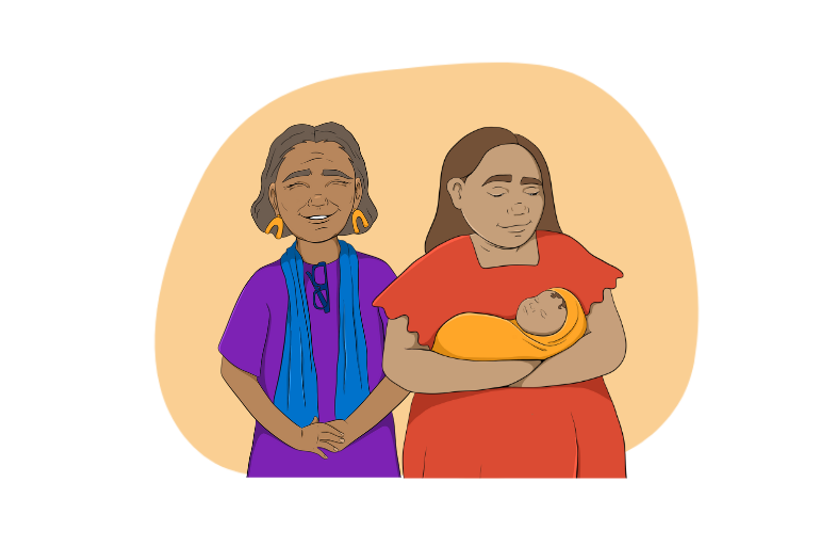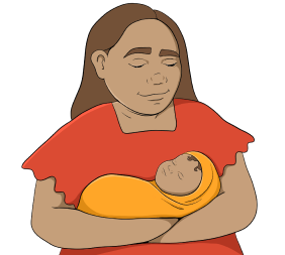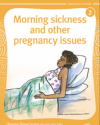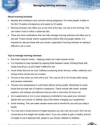
Morning sickness is a normal part of pregnancy but not everyone gets it.
For some it may settle in the second trimester (after week 12) and it unlikely to cause long-term problems.
But for some mums it can continue all pregnancy and can become more serious. This can be called hyperemesis.
Nausea and vomiting (can start early in pregnancy and end at 20 weeks). Morning sickness doesn’t just happen in the morning either. It can happen at any time of the day.

Why is it important to manage it?
It can impact our energy, our everyday activities and may affect our nutrition intake. This can impact having a healthy pregnancy.
How can I control morning sickness?
There are a few ways that could help
-
Talk to your midwife, Aboriginal health worker or doctor. They may suggest vitamin B6 or ginger tablets.
-
Eat small frequent meals - skipping meals can increase feeling sick (nausea).
-
Drink water away from mealtimes (drinking during meals makes you full).
-
Avoid drinks that are too cold.
-
Avoid caffeinated drinks like tea, coffee, soft drinks and energy drinks.
-
Choose food that is room temperature without any odour.
-
Avoid smoking - as it increases nausea.
Strategy |
Try |
| Drink clear fluids |
|
| Eat small, frequent meals |
|
| Avoid high fat, fried or spicy food |
|
| Eat plain foods when you wake up |
Keep a container of plain, dry biscuits by your bed or make a slice of toast first thing |
| Before bed, have a snack that contains protein and good carbohydrates | Cheese and crackers, fruit and yoghurt or a glass of milk are great options |
| Keep your mouth fresh |
|
| Try Ginger as it may settle nausea | Ginger tea or lollies, ginger jam or syrup, flat ginger ale. |






